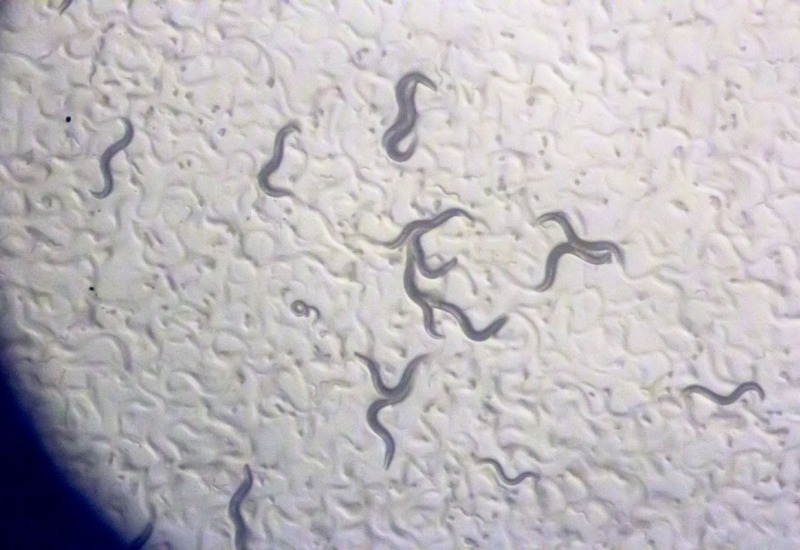Researchers uncover protein responsible for cold sensation
LSI researchers have identified the protein that enables mammals to sense cold, filling a long-standing knowledge gap in the field of sensory biology.
To sense sound, this earless organism relies on a mechanism found across many species, new study finds
LSI scientists have discovered how millimeter-long roundworms sense sound waves without ears, revealing similarities in sound-sensing mechanisms found in other species, from worms to mammals.
Roundworms offer new insights into Bardet-Biedl syndrome
Scientists have identified a new role for a protein complex at the center of a human genetic disorder called Bardet-Biedl syndrome.
Earless worms ‘listen’ through their skin
A common model species can sense sound waves without ears, providing a new tool for studying auditory sensation.
This protein is how creatures sense cold, researchers discover — and it’s found in organisms ranging from tiny worms to humans
Researchers have identified the first known cold-sensing protein to respond to extreme cold.
Living a stronger and longer life — What U-M scientists are learning from worms
Research from the LSI has uncovered a cause of declining motor function and increase frailty in tiny aging worms — and a way to slow it down.
Receptor proteins that respond to nicotine may help fat cells burn energy, researchers find
The same proteins that moderate nicotine dependence in the brain may be involved in regulating metabolism.
Brain-gut communication in worms demonstrates how organs can work together to regulate lifespan
Cross-talk between tissues actively coordinates aging in a common model organism.
Seven U-M scientists, engineers named 2017 AAAS Fellows
LSI faculty member Shawn Xu was among the newly elected fellows of the American Association for the Advancement of Science.
Tiny worms may offer new clues about why it’s so hard to quit smoking
A previously dismissed genetic mechanism may contribute to nicotine dependence.
Tasting light: New type of photoreceptor is 50 times more efficient than the human eye
The new receptor protein has unusual characteristics that suggest potential future applications ranging from sunscreen to scientific research tools.
Good in small doses: Damaging chemicals may benefit brain, too
How chemicals that cause damaging oxidation to the nervous system may actually improve sensory function at low doses
An unexpected role for TMC proteins in alkaline sensing
An LSI study identified a new type of alkaline sensor in nematodes.
Cold improves longevity for some, but shortens life span for others
LSI research shows for the first time that the age-old temperature law does not apply equally to adults and developing young.
LSI researchers make it easier to study diet-sensitive genes in worms
It’s going to be easier for scientists to use roundworms to study diet-sensitive genes thanks to an innovation led by the LSI.
First peek at how neurons multitask
LSI scientists have shown how a single neuron can perform multiple functions in a model organism, illuminating for the first time this fundamental biological mechanism and shedding light on the human brain.

















